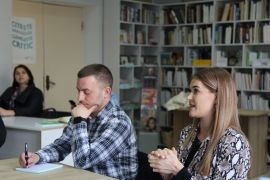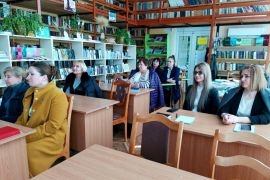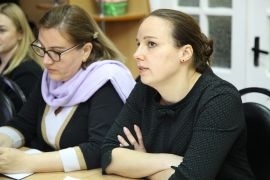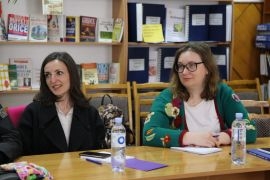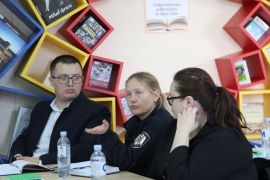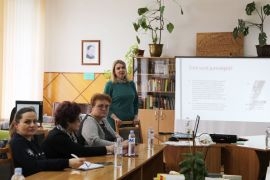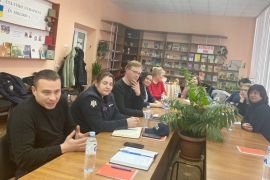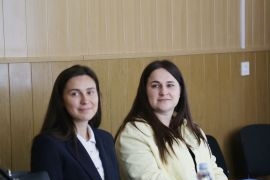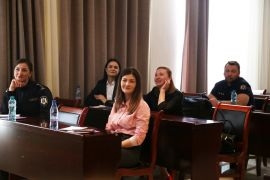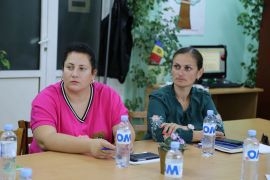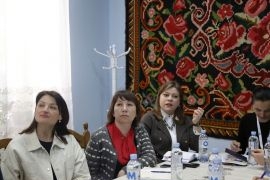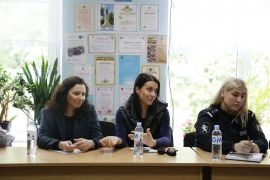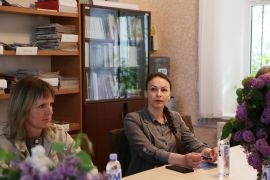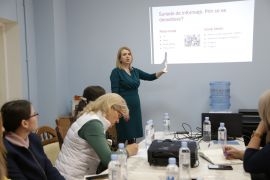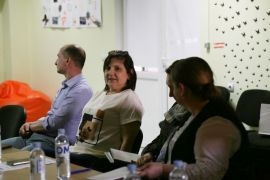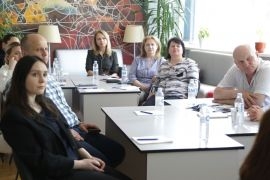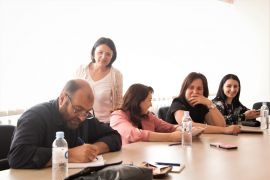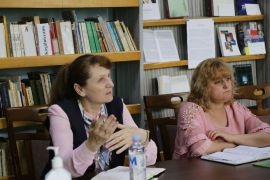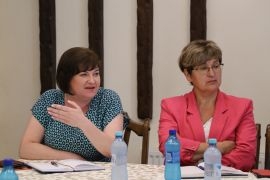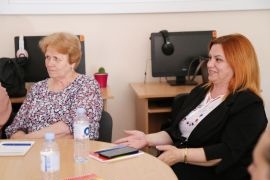back
Moldova's Public Institutions To Be More Resilient In Face Of Disinformation
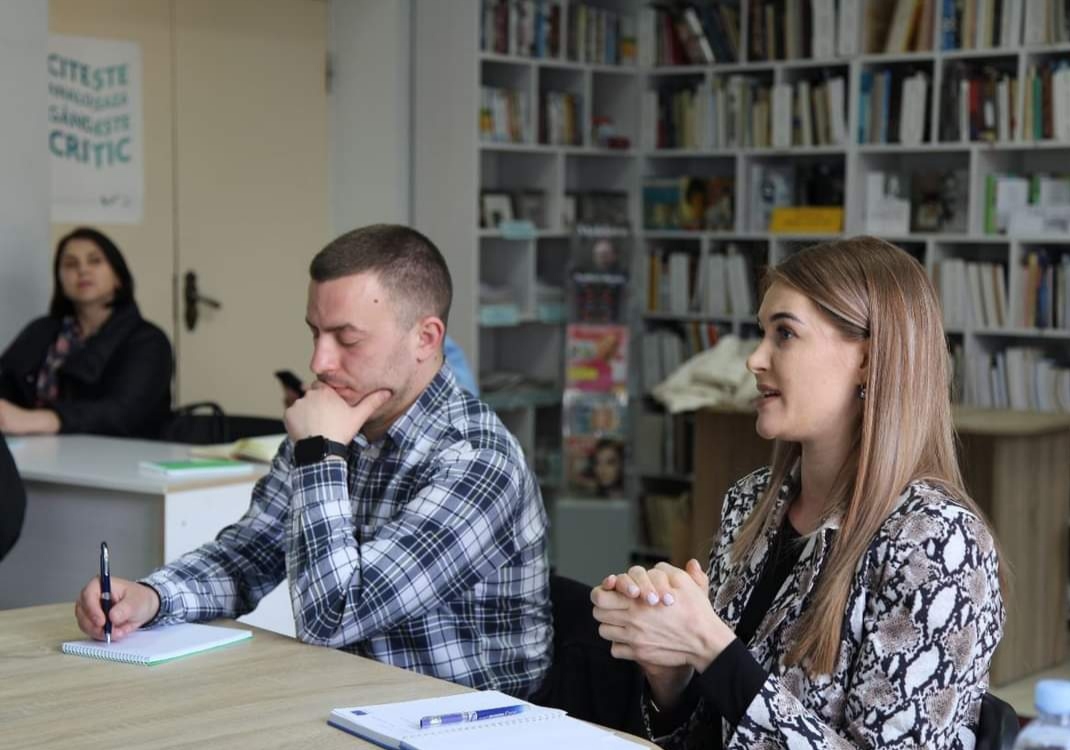
Some of the participants in the training in Straseni. Photo: API
Between March and July 2023, the Association of Independent Press (API) organized trainings for communication specialists from public institutions in Moldova’s regions on the topic of communication on issues of public interest to fight disinformation. Throughout the period some 290 communicators and other public officials from 25 districts of the country were trained, learning techniques for communicating with the public and debunking information that distorts reality.
The first module of the training focused on the phenomenon of disinformation, sources of information, the differences between media and social media, as well as examples of misrepresentation of reality and techniques to verify images and videos that have been intentionally altered. The second module presented and explained effective tools in communicating with the media and citizens, basic rules in direct communication and practical exercises to strengthen communicator skills.
"Communication is one of the most important parts of the work of a state institution, as it provides a natural link between citizens and the state structures that deliver public policies and services to citizens. Information disseminated by an institution can be of interest to various social groups; therefore, it must be presented in a clear, accessible, professional and correct manner," says Natalia Porubin, journalist, communicator, member of the Press Council of the Republic of Moldova. "Public institutions are the ones that people turn to every day in various situations – to complete paperwork, resolve disputes, social problems, health problems, employment, respect for rights, etc. The crises we have been going through have shown that a part of the population is more vulnerable to disinformation. This is precisely the ‘point’ where communicators in public institutions can play a significant role, intervening quickly with refutations when necessary, appeals to the community, and even small information campaigns in response to disinformation. This is what we did through our trainings – we discussed cases of disinformation spreading in society, showed participants how it can be discovered and managed, and how we can mitigate the effects of disinformation on the community through communication," complements Viorica Zaharia, journalist, media expert, chair of the Press Council.
Participants in the trainings said that the fight against disinformation is difficult, and in the regions, society is less prepared to distinguish between real and distorted information. These challenges call for more effective communication, and communication officers need to be properly trained. "Public officials responsible for institutional communication should give great importance to the flow of information and sources of information, but also to people's habit of reacting to the first piece of information that appears in the public space. Specialists in the field need to be continuously trained to know how and when to provide information, while citizens should be able to filter it." - Lia Banari, Head of Protocol and Public Relations Department, Stefan Vodă District Council. Public institutions have two important tasks to fulfil, says Lilia Malencova, media relations specialist, TAUG (Gagauzia) General Directorate of Culture: "Institutions must not only report on the events and activities they carry out, but also have a close relationship with the media and react quickly when they see false information about them in the public space, so as to help citizens to be correctly informed." "In the century of digitization, information circulates at a phenomenal speed, but not all the information disseminated corresponds to the truth. That is why public institutions are required to provide information at short notice, to make it possible to verify at first source. Otherwise, there is a risk that information of public interest will be distorted," believes Dumitru Racovita, judge at Ungheni District Court, responsible for media relations.
The course "Public Communication in Crises and To Fight Disinformation" can be accessed, in Romanian and Russian, on the online training platform Elearning.api.md, intended for practicing journalists, journalism students, as well as communicators and officials who transmit information of public interest, interested in consolidating their knowledge and improving their professional skills.
The trainings were organized by the Association of Independent Press (API) as part of the UNICEF project "Empower Regional Media Journalists and Journalism Students and Enhance Public Information Resilience," made possible by the generous support of the American people through the United States Agency for International Development (USAID). The content is the responsibility of API and does not necessarily reflect the views of USAID or the United States Government.
